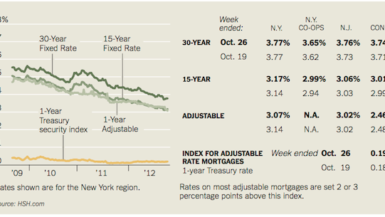Introduction
Commercial construction is a dynamic and essential industry that involves the planning, design, and construction of various non-residential structures. From towering office buildings to sprawling retail centers, commercial construction plays a pivotal role in shaping the modern landscape of cities and towns.
What is Commercial Construction?
Commercial construction refers to the process of building structures that serve business, commercial, or institutional purposes. Unlike residential construction, which focuses on homes and apartments, commercial construction involves creating structures that cater to a wide range of functions and industries.
Key Factors in Commercial Construction
Budgeting and Financing
One of the primary considerations in commercial construction is budgeting and financing. Projects must be meticulously planned to ensure they stay within the allocated budget, covering costs for materials, labor, permits, and other essential expenses.
Permits and Regulations
Obtaining the necessary permits and adhering to building regulations are crucial steps in any commercial construction project. Compliance with local and national codes ensures that the structure is safe and up to standard.
Site Selection
Selecting the right location for a commercial building is vital for its success. Factors such as accessibility, visibility, and proximity to potential customers or clients all play a role in site selection.
Design and Planning
The design phase involves collaborating with architects, engineers, and stakeholders to create a blueprint for the project. Careful planning ensures that the building’s layout is functional, aesthetically pleasing, and aligns with the client’s needs.
Construction Phase
During the construction phase, the project starts taking shape. Contractors and workers bring the design to life, and close supervision is essential to maintain quality and meet deadlines.
Types of Commercial Construction Projects
Office Buildings
Office buildings are central hubs for businesses, providing workspace and accommodating various organizational needs. From small business offices to corporate skyscrapers, these structures cater to a wide range of industries.
Retail Centers
Retail centers encompass shopping malls, plazas, and individual stores. These spaces provide an environment for businesses to showcase their products and services to the public.
Industrial Facilities
Industrial facilities include warehouses, factories, and manufacturing plants. These structures are designed to support large-scale production and storage operations.
Hospitality Establishments
Hospitality establishments, such as hotels and restaurants, are constructed to provide comfortable and enjoyable experiences for guests and patrons.
Educational Institutions
Schools, colleges, and universities fall under this category. Commercial construction in the education sector focuses on creating conducive learning environments for students.
The Role of Contractors and Subcontractors
In commercial construction, contractors play a central role in managing and overseeing the entire project. They work with subcontractors, who specialize in specific tasks like plumbing, electrical work, and carpentry, to ensure a smooth construction process.
Sustainable Practices in Commercial Construction
Sustainability is gaining prominence in the construction industry. Utilizing eco-friendly materials and energy-efficient designs not only benefits the environment but also reduces long-term operational costs for businesses.
Technology and Innovations in the Industry
Advancements in technology have revolutionized commercial construction. From Building Information Modeling (BIM) to 3D printing, these innovations improve efficiency and accuracy in the building process.
Ensuring Safety in Commercial Construction
Safety should always be a top priority in commercial construction. Implementing strict safety protocols and providing training for workers helps prevent accidents and ensures a secure work environment.
The Benefits of Hiring Professional Commercial Construction Services
Engaging experienced commercial construction services brings several advantages. These professionals possess the expertise, resources, and industry knowledge required to deliver successful projects on time and within budget.
Challenges and Risks in Commercial Construction
Commercial construction projects face various challenges, such as unexpected weather conditions, supply chain disruptions, and labor shortages. Mitigating these risks requires careful planning and contingency strategies.
Case Studies: Successful Commercial Construction Projects
Highlighting successful commercial construction projects provides real-world examples of exceptional design and execution, inspiring future ventures.
Tips for Hiring a Commercial Construction Company
When hiring a commercial construction company, factors like experience, reputation, and previous projects should be carefully considered to ensure the right fit for the project.
Conclusion
Commercial construction is a vital industry that shapes the infrastructure of our society. From towering skyscrapers to community-oriented structures, each project represents a testament to human ingenuity and ambition.





Leave a reply